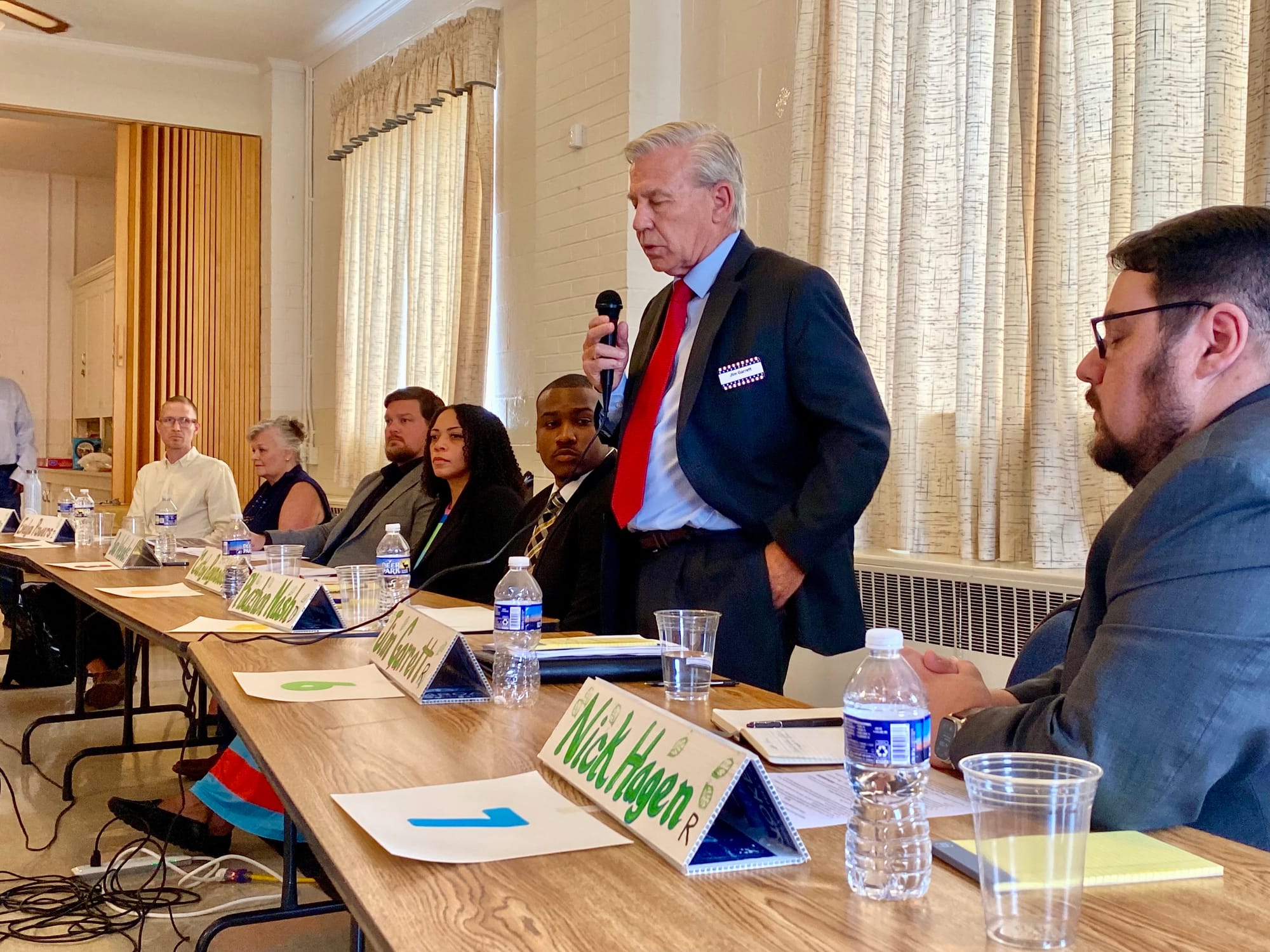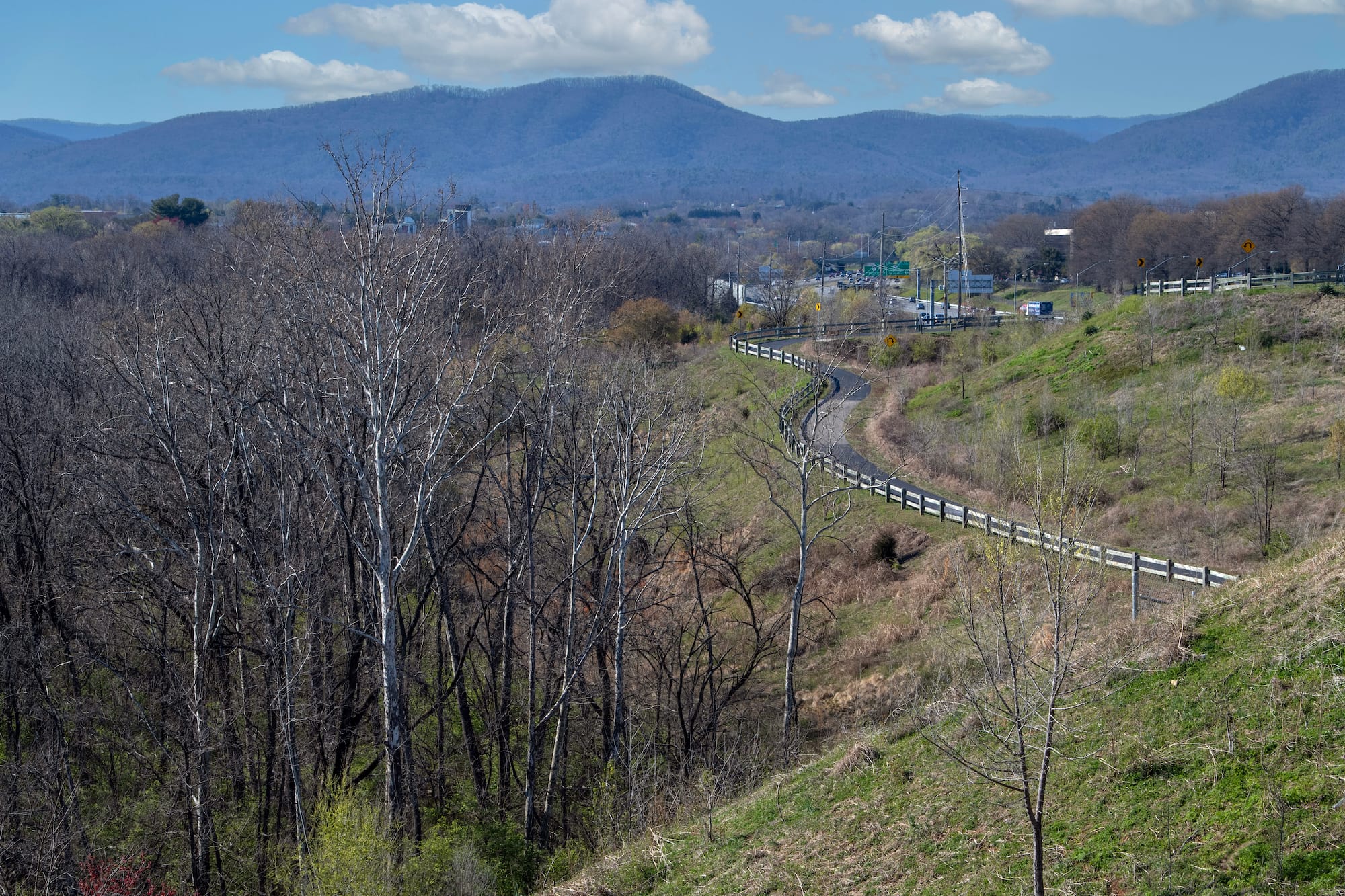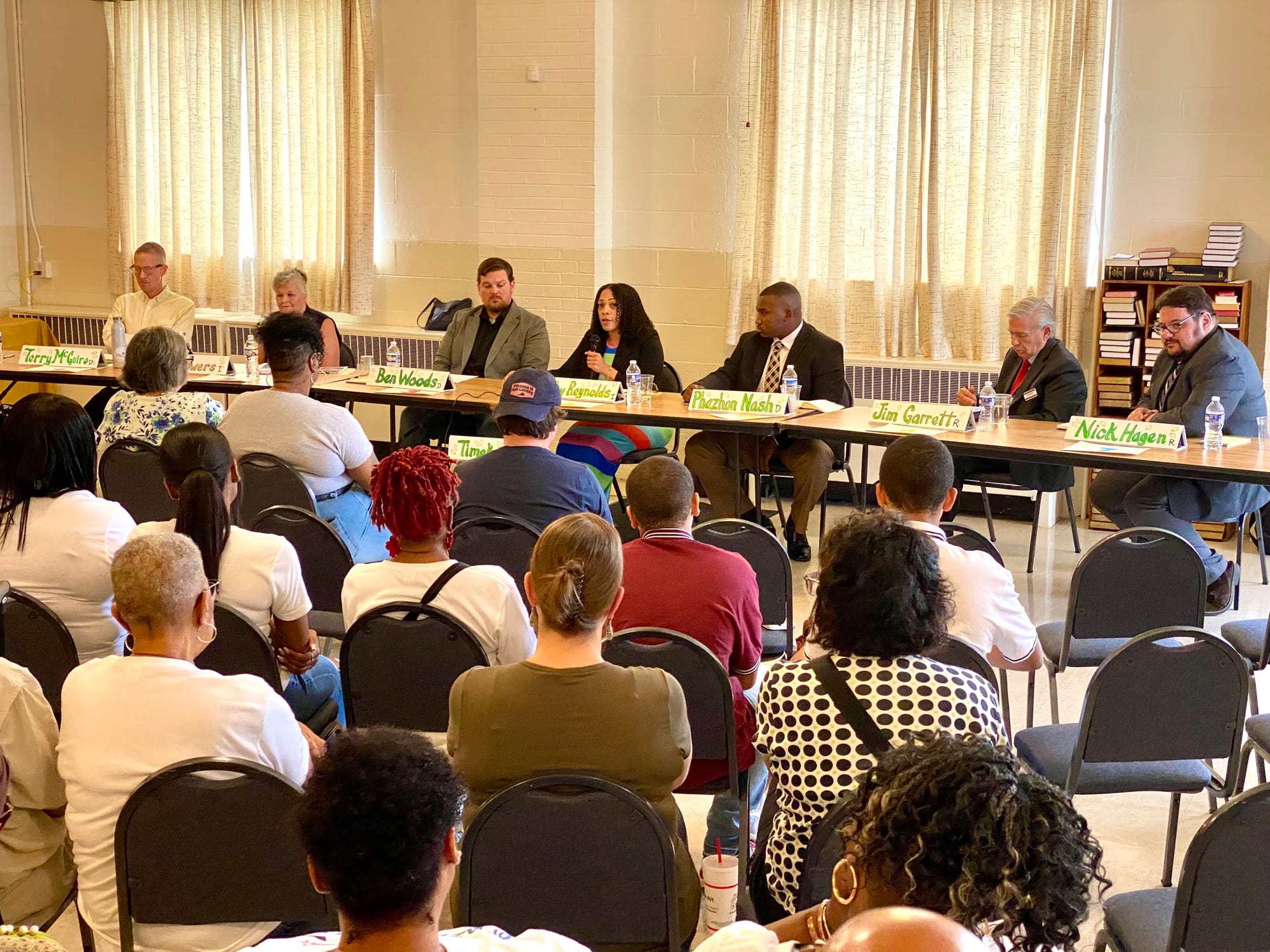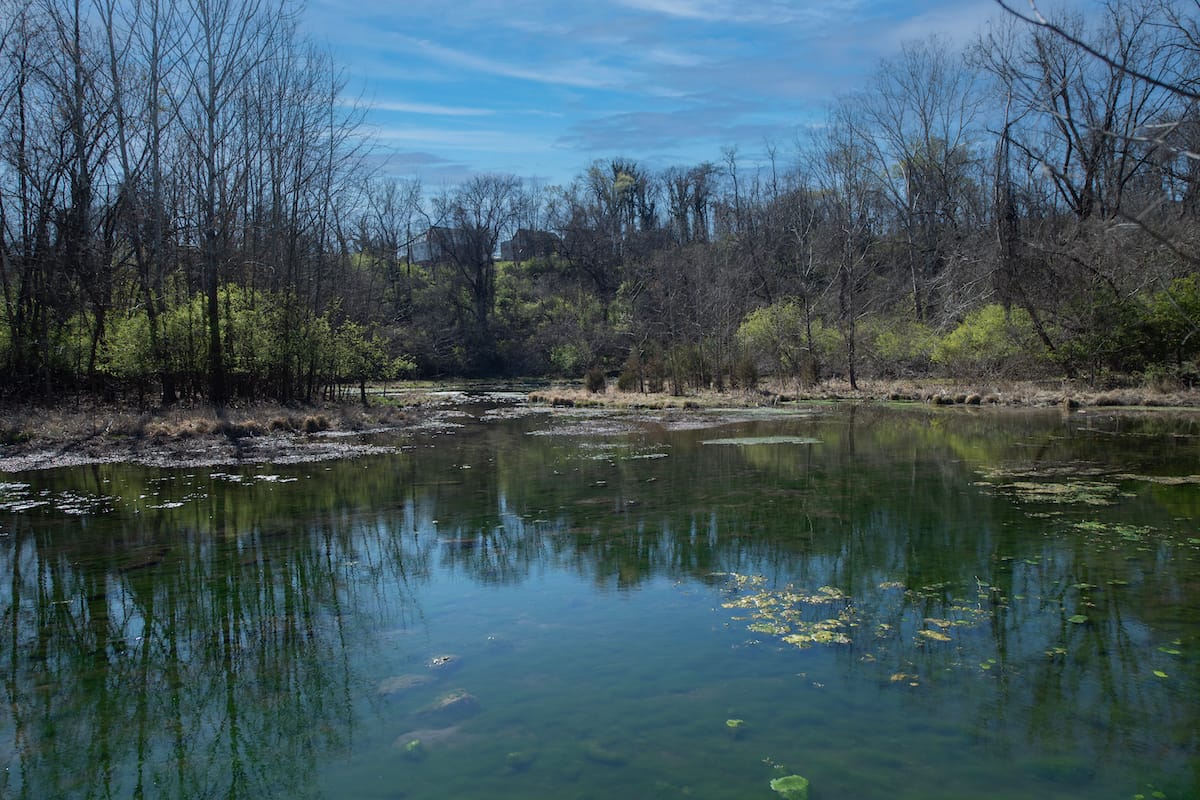Disparate Roanoke City Council Candidates Find Unity in Bashing Evans Spring Plan
None of the candidates has been elected to City Council before, and many found common ground in attacking the status quo.

When Roanoke leaders in February adopted plans for the Evans Spring woodlands, City Council narrowly endorsed the development guide.
Now the political tide is shifting.
All seven candidates for City Council, from Democrats to Republicans to independents, say they don’t agree with the city’s current Evans Spring master plan.
It was a crowd-pleasing answer to a question posed at a forum hosted by Friends of Evans Spring, a community group that has been fighting proposed commercial development of the privately-owned land. About 50 residents showed up Saturday at Williams Memorial Baptist Church for the first candidate gathering in the 2024 election.
None of the candidates has been elected to City Council before, and many found common ground in attacking the status quo and Council’s current relationship with residents. Candidates with divergent political ideologies agreed that Roanoke should not encourage development with big box commercial stores on the 150 acres of mostly wooded property across the interstate from Valley View Mall.
“This plan is awful,” Cathy Reynolds, an independent, said. “The land does not need to be disturbed.”
Activism against development has ramped up since 2022, when Council voted unanimously to spend about $225,000 on a master plan that would guide future development. In February, Council split 4-3 on adopting that plan into the city’s guiding land-use policy.
While each candidate indicated they would not have voted for the current plan, Council candidates have previously taken contradictory positions once elected.
At a 2022 debate, then-candidates Peter Volosin and Vivian Sanchez-Jones said they did not support rezoning and developing Evans Spring for businesses but did support more housing.
But the master plan they voted for as Council members calls for major commercial development.
“We have got to stop randomly, quickly making decisions about Evans Spring,” Evelyn Powers, an independent candidate who serves as city treasurer, said. “If it can be developed, I envision that to be like a small, beautiful community, but not big box. That would just not be right.”
Discussion about the vacant land has gone on for decades, ever since a highway interchange made it theoretically possible to connect to Interstate 581. After city planning commissioners pushed back on a North Carolina developer’s proposal involving a possible Costco and Topgolf, officials kicked off a new study to see what kind of development would be palatable.
The resulting master plan says Evans Spring should become a mix of big box stores, smaller retail shops, green space and hundreds of houses and apartments.
Connecting the highway interchange to the site will require a major investment, the plan states: Consultants estimate a four-lane bridge will cost as much as $75 million if constructed in 2029.
Besides independents Powers and Reynolds, the plan was assailed by Democrats Terry McGuire, Phazhon Nash and Benjamin Woods, and Republicans Jim Garrett and Nick Hagen.
“We don’t need another Costco,” Garrett said. “You know I’ve spent time reading this thing about a Costco and everything. We’ve got a Sam’s [Club], we’ve got a BJ’s [Wholesale Club], we’ve got Amazon.”

Proponents of development say Roanoke needs more housing to allay an affordability crisis and new amenities to boost the local economy. City consultants said a major development could create more than 2,000 construction jobs and more than 1,300 service industry jobs.
Neighboring residents opposed to major development invoke concerns related to traffic, the environment and racial justice. Evans Spring borders three predominantly Black neighborhoods, and some see the city’s push for development as a modern-day version of urban renewal.
Candidates say they want to see the land left as it is or turned into a nature park, possibly with some modest housing.
“What we suffer from is lack of creativity and a failure to shatter false choices that we either have to have development of that area, or housing and jobs,” McGuire said. He said the more Republican-leaning city of Greenville, South Carolina has invested in creating parks and green spaces and, “Lo and behold, that’s good for the economy.”

During the three-hour forum, candidates touched on issues related to gun violence, the city’s climate action plan and trust between Black residents and city government.
Moderators Theresa Gill-Walker and Raekwon Moore also asked candidates their views on reparations to the African American community and the legacy of urban renewal projects, which destroyed Black neighborhoods.
In many questions, the fate of Evans Spring loomed large.
“Absolutely,” Hagen said when asked if he saw a connection between current plans for Evans Spring and past city actions. “This is urban renewal 2.0, period.”
He anticipated that major development on the land could lead to flooding downstream and suggested the government should “utilize legal means to acquire the rest of the property for the city” and put a conservation easement on the land.
“I don’t want to just preserve Evans Spring, but I want to restore it,” Nash said. “It needs significant investments when it comes to its capacity to be able to help deal with our city's stormwater management ability.”
Nash said he would love to see some kind of “natural amphitheater” created on the land.
Woods said he would want to leave Evans Spring undeveloped.
“It looks like urban renewal to me,” he said.

Woods said he would be in favor at the federal level of reparations to African descendants of slaves. “Locally, I think that something like that, especially for the urban renewal policies, could be property tax grants for the people that were directly afflicted,” he said.
Residents will pick three out of the seven Council candidates to open seats.
Councilwoman Trish White-Boyd isn’t seeking reelection, Councilman Luke Priddy resigned and Councilwoman Stephanie Moon Reynolds is forgoing reelection for a mayoral bid.
In that separate election, Moon Reynolds, an independent, will face Vice Mayor Joe Cobb, a Democrat, and former mayor David Bowers, a long time Democrat running as a Republican. Mayor Sherman Lea opted not to run for reelection.
When Stephen Niamke, a founder of Friends of Evans Spring, asked the crowd if the group should hold a mayoral forum as well, the audience cheered. Niamke said they would shoot for a September event.
Cobb and Moon Reynolds were among those voting against the final master plan, while Bowers has said he supports commercial development of the property.
The election is Nov. 5, and early voting begins Sept. 20.

